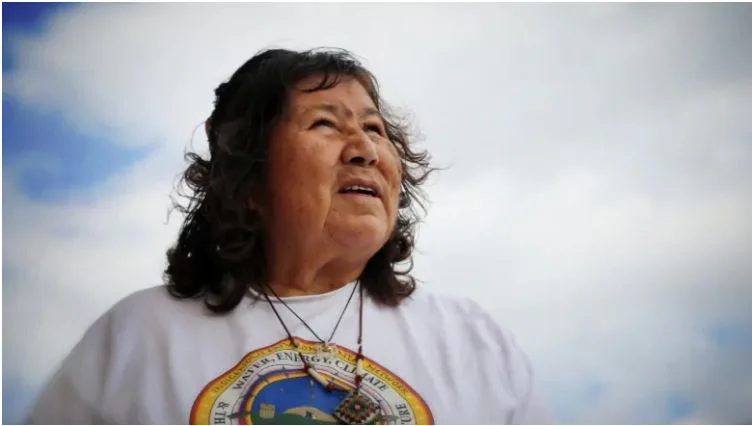Peltier says world leaders are always shocked and surprised when they hear her describe the water situation for First Nations in Canada. She says Canada is viewed by the outside world as a safe, rich country but feels First Nations people are treated like “animals.” Peltier says it seems to be ok for First Nations to go 20 years without clean drinking water but if that were to happen in any Canadian city, it would result in a state of emergency, that would be handled quickly.
Breaking up: ice loss is changing one Anishinaabe fisherman’s relationship with Lake Superior
Respect for water was as much a part of Phillip Solomon’s fishing education as sawing through thick winter ice. The Anishinaabe fisherman can see how rising temperatures are changing Gitchigumi and the fish his community relies on. Sometime in the early 1990s, the ice was so unusually thick and smooth on Gitchigumi that Anishinaabe fisherman Phillip Solomon drove his car, a 1984 Monte Carlo, across the lake from Fort William First Nation to Pie Island with a friend. “There was seven feet of ice,” says Phillip, who everyone calls “Benny.” “There was no snow. We cut the hole, standing in the hole. I was standing in six feet of ice.” By the time he and his friend cut all the way through the ice, there was only a foot of water to fish in, and the two had to set their net somewhere else.
2 Manitoba grand chiefs highlight long-term boil water advisories on World Water Day
Indigenous people in Manitoba are highlighting the significant role clean water plays in society today — practically and culturally — in honour of World Water Day. The United Nations declared March 22 as World Water Day since 1993. It's a day to focus on the importance of fresh water, and advocating for sustainable development and bringing clean drinking water to more people.
Indigenous community hosts full moon ceremony to heal Chedoke Creek
Kristen Villebrun and Wendy Bush hoped they wouldn't have to pray for Chedoke Creek, but four years after they first raised alarm about the water's condition, they were part of an Indigenous full moon ceremony to do just that. About 50 people showed up near Princess Point on the dark and frigid Monday evening for the monthly ceremony, which was particularly special as it focused on Chedoke Creek. The body of water that runs into Cootes Paradise had about 24 billion litres of sewage and storm water runoff leak into it due to a gate being left open.
Activist honoured at first meeting of Great Lakes Guardians' Council
Ontario's government is working to protect what matters most by identifying priorities for action to help protect the water quality and ecosystems of the Great Lakes and other waterways as part of its commitment in the Made-in-Ontario Environment Plan. Today, Rod Phillips, Minister of the Environment, Conservation and Parks and Grand Council Chief Glen Hare co-chaired the Great Lakes Guardian Council, which includes leaders from across Ontario including municipalities, First Nations and Métis communities, environmental organizations, and the science community, to discuss challenges and opportunities around the Great Lakes.
Laced with fear: why some Ontario First Nations don't trust tap water or eat the fish
Water is something most Canadians take for granted. We have so much of it, it's no wonder. Per capita, our country has the world's third-largest freshwater reserves, but yet in many Indigenous communities, water can be difficult to access, at-risk because of unreliable treatment systems, or contaminated. That's the case in Delaware First Nation, an Indigenous community of about 500 people an hour southwest of London, Ont., a place where fishing was everything 60 years ago.






